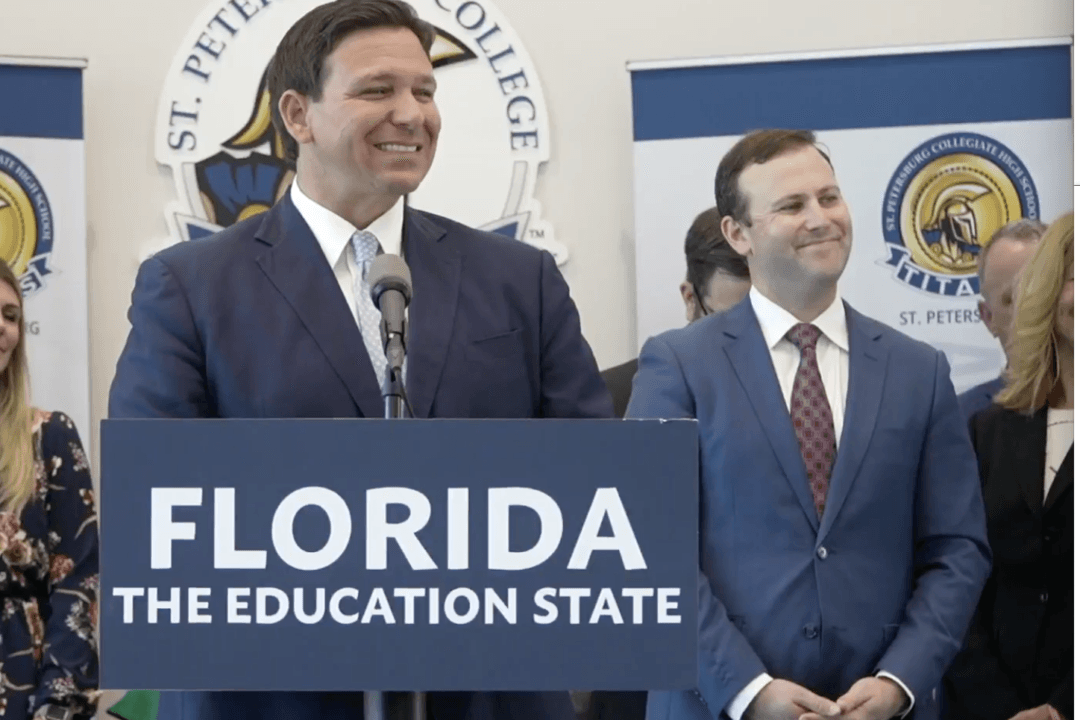PUNTA GORDA, Fla.—To address Florida’s teacher shortage, Gov. Ron DeSantis is taking a three-pronged approach to recruitment—bring retired first responders out of retirement, put military veterans on a fast track to certification, and help teachers get advanced degrees in order to teach dual enrollment courses. The governor made his pitch at a press event in New Port Richey on Aug. 16.
The State Board of Education is set on Aug. 17 to hear a rule to formally implement a program for veterans to receive a five-year temporary education certificate while they finish their bachelor’s degree. A set of criteria must be met before the veteran applies, as laid out in SB 896 , which the governor signed in March after it received unanimous bipartisan support.




